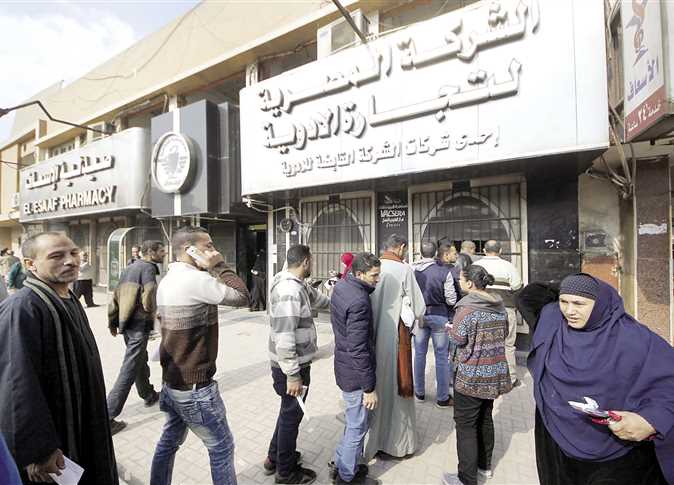
Egypt has once again been hit by drug shortages following reports of penicillin injections missing from shelves earlier in December. Twelve pharmaceutical drugs that have no alternatives were also missing as of Saturday.
Patients and their relatives have been queuing at pharmacies in different governorates to get hold of medications.
Penicillin injections shortages were reported by pharmacists and MPs earlier this month though the government initially denied the reports. However, the Health Ministry said last week it will work to end the crisis by Wednesday.
Drug shortages have been common since last year, with the government attributing it to a surge in the US dollar exchange rate, as the effective materials are bought in hard currency.
The Health Ministry agreed with pharmaceutical companies to raise drug prices by up to 20 percent. However, the crisis continued and was reported on again in September.
By Saturday shortages of all drugs, not just penicillin injections, were reported in pharmacies as well as in private sector hospitals and government medical institutions.
Ali Ouf, the head of the General Division of Drugs in the General Federation of Chambers of Commerce, said that that 262 drugs are missing but explained that 250 of the medicines have alternatives.
In statements to Al-Masry Al-Youm, Ouf said that the missing drugs are for the treatment of Parkinson’s disease, heart, kidney, liver, brain and nerves diseases. He called on the ministry to work to provide these medicines in the market.
He pointed to the need to review the drug system in general and to establish a supreme body of medicine in Egypt to manage the system scientifically, while encouraging the national industry to work to solve the crisis, in addition to anticipating them before they occur.
Mohamed Hassan says he is struggling to get hold of the kidney failure drug Ketosteril. He added that the price of the Egyptian brand costs LE3,000 and the Turkish brand LE2,000, but can find neither in pharmacies or hospitals.




